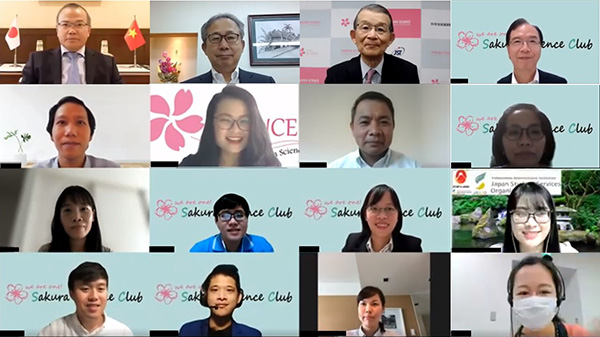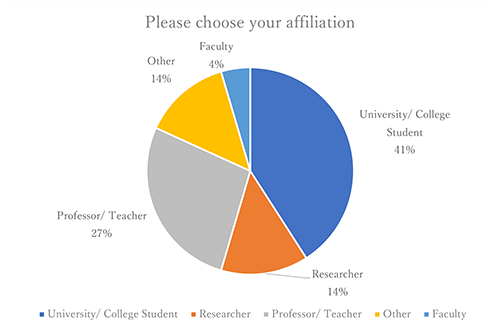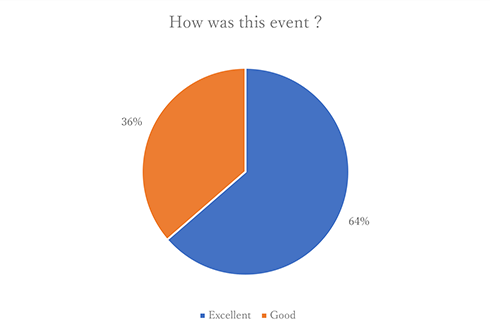Events
2nd Vietnam Alumni Meeting Shared Real Stories about Academic and Work Life in Japan
On September 25, 2021, the 2nd SSCV Alumni Meeting “Sharing Our Experiences Studying and Working Abroad” was held online. Co-hosted by Sakura Science Club Vietnam (SSCV) and the Japan Science and Technology Agency (JST), the event was moderated by SSCV coordinators Dr. Nguyen Thi Nhien and Mr. Le Huynh Son. H.E. Mr. Takeo Yamada (Ambassador of Japan to the Socialist Republic of Viet Nam) and H.E. Mr. Vu Hong Nam (Ambassador of the Socialist Republic of Viet Nam to Japan) both mentioned how the program will strengthen Vietnam-Japan ties. Ms. Vu Minh Hanh from JASSO Vietnam Office provided insightful information on studying in Japan.

Keynote Sessions by Guest Speakers
1st Keynote Session:
Dr. Tran Dang Xuan
Associate Professor, Hiroshima University
Dr. Tran is a graduate of Thai Nguyen University of Agro-Forestry and Kagoshima University, where he obtained his PhD in 2004. Since 2012 he has been an associate professor at Hiroshima University. He is Vice-President of the Association of Vietnamese Intellectuals in Japan (AVIJ).
Dr. Tran spoke about best practices for building a successful career in Japan. In a non-English environment, learning Japanese was paramount: students should focus on improving their language abilities in their first year by becoming friends with Japanese people, learning kanji by reading newspapers, listening to TV, and making seminar presentations in Japanese. Keeping in contact with alumni and professors even after graduation will also help students succeed in scientific or academic careers. Good grades and regular publications are important, but so are good relationships.
In his Q&A session, Dr. Tran was asked about a scholarship that he founded. He and his associate founded a scholarship to help Vietnamese students studying abroad in Japan. He said about 500 students were helped by the program over 10 years.
The second question was on how to start a company in Japan. Starting a business in Japan is more difficult than in Vietnam because the Japanese economy is already so developed. Starting a business in Vietnam with a Japanese collaborator may be easier.
He also advised that young researchers can seek employment in Japan, Vietnam, or elsewhere. For students interested in research, he strongly recommends Japan. But for young professionals interested in earning a lot of money, a developing economy is probably better.
2nd Keynote Session:
Dr. Le Van Lich
Lecturer, Hanoi University of Science and Technology
A graduate of Hanoi University of Science and Technology (HUST), Dr. Le received a JICA scholarship to study at Kyoto University. He pursued a PhD in Materials Science and Engineering. In 2017 he joined HUST as a lecturer, specializing in material properties and computer chip design.
Dr. Le talked about his unexpectedly complicated yet fulfilling experience earning a PhD. He shared “9 things I wish I knew before starting my PhD” (see PDF page 6-16).
First and foremost, making sure to get a good supervisor topped his list. Candidates should find a supervisor who matches their working style and who will bring out the best in them. A good supervisor can be even more important than the university’s ranking.
Additionally, Dr. Le suggested that on your journey to a PhD, you must “be your best self” and not compare yourself to others. Doing research in Japan is a great opportunity to pursue your passions.
In the Q&A, one attendee asked about supervisors. What if you suspect your supervisor is not a good researcher? Dr. Le said that it’s not so easy to judge a professor’s research ability, because they publish many papers. He urged candidates to note two things: the general direction of the professor’s research, and the working culture of their laboratory. If those things are different from one’s expectations, it can lead to a miserable situation. Dr. Le recalled a friend who had to switch to another lab after several years into the doctoral program.
Sharing Session from SSC Members
1st Sharing Session: Dr. Nguyen Chi Long
Dr. Nguyen, who completed his PhD at Tohoku University, is currently following his postdoctoral training at the University of Chicago. His aspiration is to become a Vietnamese ambassador to the world and to contribute to his country, especially in oncology.
As one of the first Vietnamese Sakura Science members back in 2014, Dr. Nguyen was deeply impressed by the advanced knowledge and medicine he saw at Tohoku University during the two-week program.
The experience had such an impact on him that he returned to Tohoku University on a MEXT scholarship to get his PhD. He said, “You can learn here and be able to travel and even work all over the world” after graduating from Japan.
“You will face a lot of challenges. Everything is new, and exposing yourself to these new challenges every day makes you adaptable and flexible. Gaining flexibility is a very important soft skill to be successful in any career, in any field,” advised Dr. Nguyen.
When asked about the differences between going to university in Tohoku and Chicago during Q&A, Dr. Nguyen explained that Japan seemed to be more detail-oriented, which resulted in an excellent training program. Researchers are much freer in American laboratories. In terms of finances, Dr. Nguyen was able to get by with scholarships and a part-time job.
On choosing which field of medicine to study and where to study it, Dr. Nguyen said that there are certainly good reasons to study in America. However, without a bridging program like Sakura Science, the process for being accepted into a university can be long and daunting.
2nd Sharing Session: Ms. Ha Hoang
A Sakura Science Club member since 2016, Ms. Ha Hoang earned a MEXT scholarship to complete her master’s degree at Kwansei Gakuin University (KGU). She was the first Vietnamese student at KGU’s School of Science and Technology. She credits her professor with helping her develop as an engineer. She received KGU’s Nitta Memorial award, and won Best Presentation at ICMENS 2019. Now an employee at a computer memory company, she is also a Sakura Mentor based in Japan and has contributed a series of useful columns on job hunting.
Ms. Ha explained that the biggest lesson she learned was about collaboration. In university, it’s natural to compete with others to achieve higher scores or to get more papers published. But in a company, everyone is coordinating towards the same goal. Ms. Hoang says that she “totally forgot about competition” since the day she started working in Japan.
In the Q&A session, Ms. Ha was asked how difficult it was to work in an all-Japanese environment. She explained that even though she doesn’t fully understand everything her coworkers say, she does use Japanese all the time. Thanks to the positive atmosphere at her company, she is improving gradually.
On learning Japanese before coming to Japan, Ms. Ha recommended at least to start learning the language, as Japanese will be needed in daily life. NHK World’s “Learn Japanese” is a free online service for beginners.
Finally, Ms. Ha was asked why she decided to start working after her master’s degree rather than going for a PhD. Her first reason was that she was interested in creating real, practical products. Her second reason was practical on a personal level. Having a job brings financial stability to one’s life. Ms. Hoang valued such stability, so she decided to search for a job.
The secretariat would like to extend sincere words of thanks to all speakers, honorable guests, moderators and SSCV coordinators headed by Mr. Ngo Van Quyen. Despite last minute changes, and some connection issues during preparation, the reunion was carried out seamlessly. You can view the official recording of this meeting on SSC YouTube Channel.









